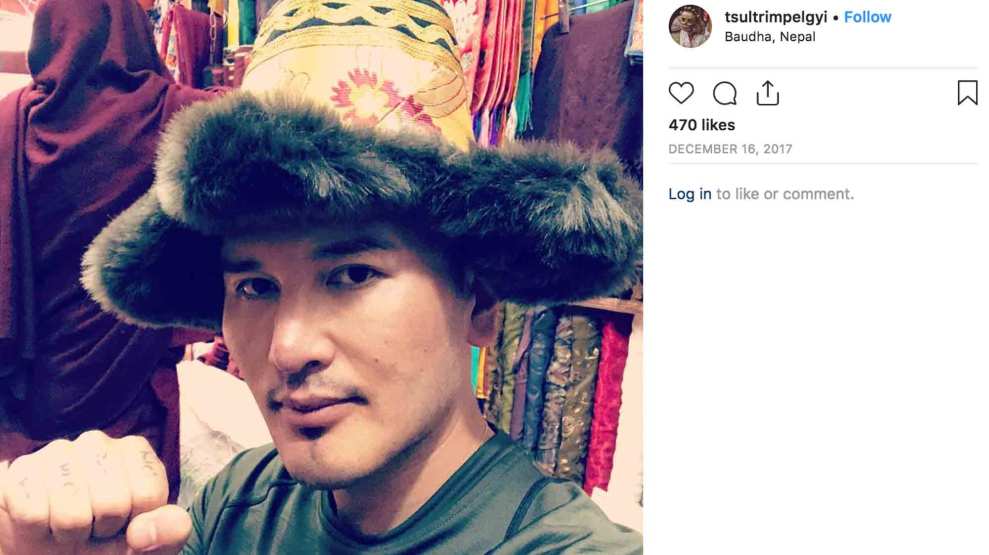
tsultrimpelgyi/Instagram
On October 12, 2016, Cheng Gao, a recent immigrant from China, donated $50,000 to Trump Victory, the joint fundraising committee for Donald Trump’s presidential campaign and the Republican National Committee. It was the first in a series of big-dollar contributions from Gao to Trump and the Republican Party that eventually would total $237,000, according to an analysis by the Center for Responsive Politics. The disclosure form filed by Trump Victory for this contribution listed an unusual occupation for Gao: “Buddhist artist.”
Gao, 38 years old, does not fit the profile of the typical Trump megadonor. Hailing from Beijing, he is a heavily tattooed vegan and an advocate of Tibetan Buddhism who recoils at harming insects and who reveres the Dalai Lama. Gao’s Instagram account, which appears under a Tibetan name he uses (Tsultrim Pelgyi), reflects his spiritual sensibilities, his passion for art and design, and a jet-setting lifestyle. ”May Peace Prevail on Earth,” he comments in a recent post. In another, he is pictured with Nicole Kidman at the Hollywood Film Awards party. Posts chronicle him traveling around the world (Kathmandu, Disneyland, Beverly Hills, New Delhi, Kyoto, Doha), getting his latest tattoo (“Tsultrim” is inked across his knuckles), viewing art in prominent museums, sitting behind the wheel of a Rolls-Royce, visiting Buddhist monasteries, attending New York Fashion Week, and watching an Ultimate Fighting Championship bout at Madison Square Garden. “Fighting is meditation,” he observes in one post.
Gao, who made his Instagram account private on Friday after inquiries from Mother Jones, also posted photos of a more political nature: his name card and menu at an exclusive January 2017 inauguration gala for major Trump donors held at the Library of Congress with incoming Trump Cabinet members (packages that included admission to the dinner started at $100,000); a November 2018 holiday reception at the White House hosted by Donald and Melania Trump; and multiple visits to Mar-a-Lago, Trump’s private Palm Beach club. One photo gives the impression that when Gao visited Mar-a-Lago in January, he rode aboard a Trump Organization helicopter. Gao also posted a photo of Trump Tower, where he and his wife, Qingqing Qiu, moved into an apartment a few months after Trump’s inauguration.
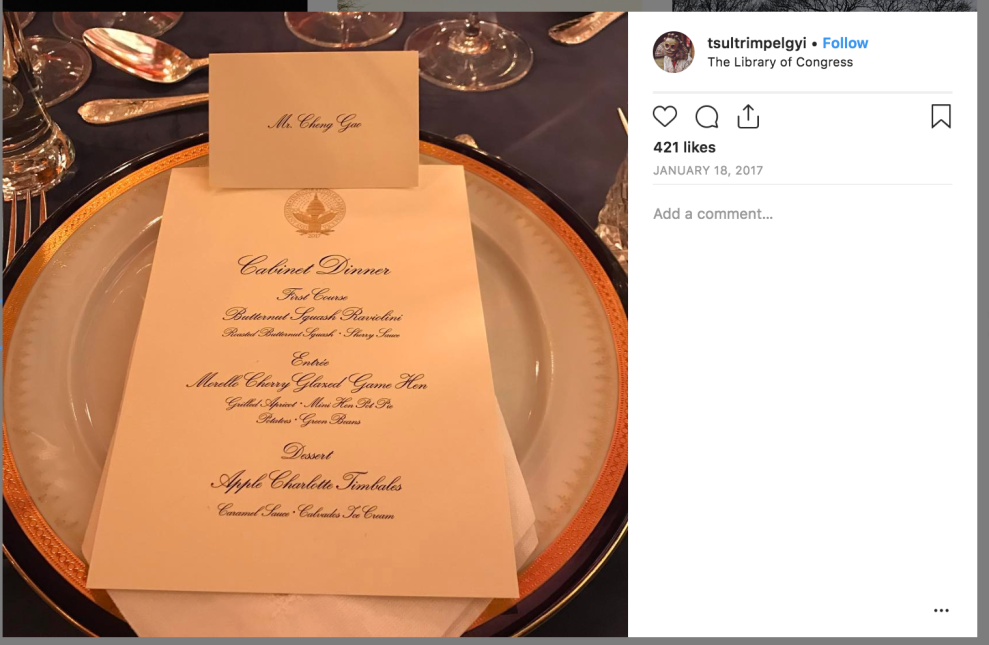
Gao attends the Cabinet dinner during Donald Trump’s inauguration.
It’s unclear how Gao amassed the wealth fueling his lifestyle and six-figure political giving. (His donations extend beyond politics. He has contributed to the Rubin Museum in New York City, which focuses on Tibetan art, providing support for several exhibits. In one case, he donated $25,000 to underwrite an exhibition featuring rare Tibetan images, according to a former curator at the museum.) Campaign finance records note Gao is affiliated with a business called Dharma Joy Arts & Culture. Gao founded the Beijing-based company in 2012, according to Chinese corporate records. In 2015, shortly after relocating to Manhattan from Beijing, he incorporated a firm by that name in New York state. A LinkedIn page describes Dharma Joy as “an innovative lifestyle and fashion design firm that integrates the essence of Oriental wisdom into modern arts and design.” Dharma Joy does not seem to have a website in the United States, and there appears to be little sign on the internet of it conducting any major business. Friends and associates of Gao who asked not to be identified say that Gao and Qiu had a boutique in Beijing under this name. (In 2014, this business sponsored an art installation in downtown Beijing at a venue called the Tsultrim Art Space.)
Gao and Qiu, according to several Gao associates, have said they own a business called Regal Aesthetic, a skin-care company. Chinese speakers asked by Mother Jones to search for records on Dharma Joy and Regal Aesthetic found scant documentation of significant business activity in China by either company. According to corporate records in Hong Kong, a company named Regal Aesthetic Medical Limited was registered there in May 2018. It’s not clear whether Gao or Qiu—who are not listed as directors of the company on these records—have any connection to this business, which operates a beauty salon in the Kowloon section of Hong Kong that provides laser skin treatments and facials. A Mother Jones search located no public records indicating that Regal Aesthetic was conducting business in the United States.
Qiu, who graduated from New York University in 2009 with a degree in urban design and architecture studies, listed her most recent job as the deputy director of the China Intangible Cultural Heritage Fund on her LinkedIn profile (which was disabled after Mother Jones contacted her and Gao). Registered under China’s Ministry of Culture, the fund aims to protect Chinese cultural practices, particularly folk culture. From 2007 to 2012, Qiu worked for the Center for Social Innovation at the China Social Entrepreneur Foundation, an organization founded by her well-connected mother, Wang Ping, and Chinese business leaders and senior government officials. According to an article in the Stanford Social Innovation Review, “Wang started her career in academia—earning a master’s degree in politics from the University of Maryland and serving as a visiting scholar at the European Union’s agricultural division—and then held positions in the International Department of the [Chinese Communist Party], at the Hong Kong investment and brokerage firm BNP Paribas Peregrine, and at the Beijing office of the law firm Cha & Cha.” The mission of the international department of China’s Communist Party has been described by experts as cultivating ties with communist parties abroad; developing connections with think tanks and nongovernmental organizations; monitoring overseas political developments; and promoting Chinese influence in the West.
One online bio for Qiu notes, “QingQing is a realistic idealist. She believes that the cross-boundary understandings and collaboration of Arts, Philosophy, Science, Technology, Economy and other areas can result in remarkable strength and power. She hopes that everyone who wishes to improve the world through innovations could realize their dreams.”
What accounts for the generosity of Gao, a Dali Lama–loving, vegan aesthete, when it comes to Trump, who has exploited fears of immigration and who behaves in a rather non-Buddhist manner? Gao “is extremely pro-life,” a friend of his says. “Every now and then you get a person who grabs onto a politician for one policy.” But this person adds that Gao is a “complicated” man and his support for Trump is “a very big mystery to me… Even the people closest to him can’t understand.” Another person who knows Gao and Qiu says, “This just doesn’t add up.”
The friend notes that Gao was persecuted in Beijing and placed under government surveillance, presumably for supporting Tibet and its spiritual leader, the Dalai Lama. China seized Tibet in 1950 and continues to rule it as an autonomous province, and Beijing views the exiled Dalai Lama as a major political threat.
Gao’s friend suggested that Gao, with his Trump Tower address and visits to the White House and Mar-a-Lago, might have been trying to impress Chinese business contacts: “He’s a business person. What he’s doing has to do with his business. It’s not a shady thing.” In China, connections—even superficial proximity to power—is a potent form of social and business currency. Chinese speakers have a word for this: guanxi. But as a vocal supporter of Tibet and the Dalai Lama, Gao would presumably have had difficulty doing significant business in China. “He’s very anti-China right now,” his friend says.

Gao posted this photo from Mar-a-Lago on January 31, 2019.
About four years ago, Gao and his wife moved to New York from Beijing with an infant child, eventually settling in a rented loft on West 25th Street in the spring of 2015. Gao spoke little English at the time. “It didn’t seem like they were rolling in dough,” a Gao acquaintance said. “I was not really sure what he did. A designer or sculptor or what?”
For much of the 2016 presidential election, Gao did not participate in the contest as a donor. Yet in the final weeks of the race, he began cutting large checks to the Trump campaign and the Republican National Committee. In mid-October, he made his $50,000 donation to the Trump Victory committee. And he would continue to send hefty amounts to Trump and the RNC—he donated $30,000 to Trump’s inaugural committee—until March 28, 2018, the date of his most recent contribution. By this time, his donations had reached nearly a quarter-million dollars. It is legal for green-card holders—that is, foreigners who have permanent residence status—to donate to US political candidates and committees; foreign nationals who have not obtained this status are prohibited from giving money to candidates.
Gao and Qiu did not reply to repeated emails and phone messages from Mother Jones requesting comment. In response to the initial requests, a Republican lobbyist contacted Mother Jones and identified herself as a friend of Gao and Qiu and asked to have an off-the-record conversation. Subsequently, Mother Jones was informed that a public relations company would soon respond regarding the inquiries about Gao and Qiu. But no PR firm ever did so. Mother Jones then sent Gao and Qiu a long list of detailed questions that included queries about Gao’s reasons for donating to Trump, his trips to the White House and Mar-a-Lago, his businesses, his immigration status (does he possess a green card and, if so, when did he receive it?), and Qiu’s work for those Chinese organizations. Gao and Qiu did not respond.
At one point, Qiu inadvertently sent Mother Jones an email meant for the Republican lobbyist. In this brief note, Qiu asked, “Any news with greencard and Air National Guard?” Subsequently, Mother Jones asked if Qiu was referring to her husband’s immigration status. Neither Qiu nor the lobbyist responded.
An RNC official told Mother Jones in an email: “In order for anyone to donate to Trump Victory or the RNC, he or she must provide information showing they are eligible to contribute, as Mr. Gao did.”
Gao’s Instagram feed, which he started in May 2016, has 87,000 followers, many of whom appear not to be genuine, according to two analytics companies. (HypeAuditor estimated that a little over 50 percent of his followers are real; IG Audit said that about 20 percent were legitimate.) Several people who knew Gao and Qiu before he started posting to Instagram say they considered the couple generally reserved people and devout Buddhists deeply interested in art. Gao, they said, usually wore black.
The Instagram feed combines Gao’s affinity for Tibetan Buddhism—there are numerous photos of Tibetan art and inscriptions—with what might be considered an incongruous flashiness. He features various tattoos and his visits to the Bang Bang Tattoo parlor in New York City, which boasts top celebrities as its clientele. (“Tattoo is my life,” he writes.) And he chronicles his visits to gyms. (“Workout is my second Faith.”) In one post, Gao shows off a pair of Mercedes G-Wagons, one with the license plate TSULTRIM. Another presents a photo of a $20,000 replica of a Kentucky Fried Chicken Zinger sandwich carved from a meteorite, the priciest offering in the fast-food company’s online boutique. Qiu apparently purchased the KFC sculpture anonymously for her husband in 2017. “It is indeed a chicken sandwich out of the world,” Gao wrote in this post. “My love for KFC especially the Zinger sandwich go back a long way. For almost ten years in my teens, I ate the Zinger burger every single day, it was my favorite. If you ask me something I occasionally miss after becoming vegan, the KFC Zinger burger would defiantly [sic] be one of them.”
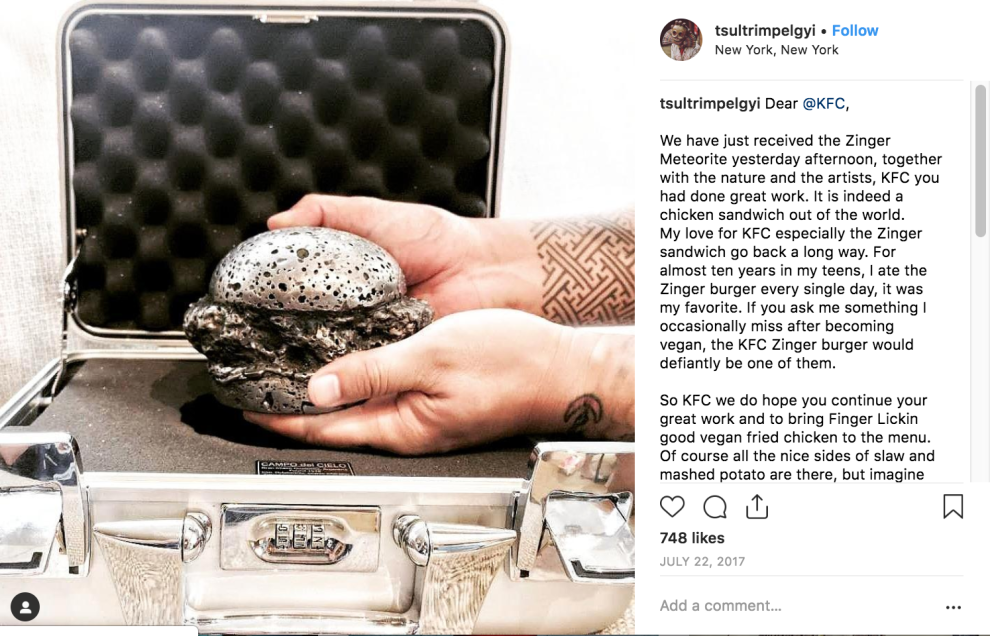
Qiu gave her husband a $20,000 KFC Zinger carved out of a meteorite.
In the spring of 2017, Gao and his family left their loft in the Flatiron District and moved uptown and into Trump Tower. According to real estate records, their two-bedroom, 1,587-square-foot apartment was purchased for $3.75 million in May 2016 by a limited liability corporation called Pure Regal International that is registered in the British Virgin Islands. The firm’s owners are not disclosed on the corporate records for this company. (The British Virgin Islands are a notorious tax haven.) The mailing address for Pure Regal is the Tortola office of the Portcullis Group, which describes itself as “one of the largest Asian independent wealth managers.” No public records could be found linking Pure Regal International to Gao’s Regal Aesthetic company. The purchase of this apartment, previously owned by another LLC, would not have directly benefitted Trump, who long ago sold most of his Trump Tower apartments but whose company continues to manage the building.
Asked to reconcile Gao’s fondness for Trump with his devotion to the Dalai Lama, Gao’s friend remarks, “He is a very curious person. The most unique person as a Trump donor. He is one of the most unusual people you’ll ever meet. If you’re looking to make sense of everything with him, you’re not going to.” This friend notes that it could also be tough to make complete sense of Gao’s eclectic Instagram feed. Almost as if to prove such a point, Gao, in one of his most recent posts, shared a photo of a Mickey Mouse tattoo and commented, “As long as they are cartoonized, all the problems in the world could be resolved.”
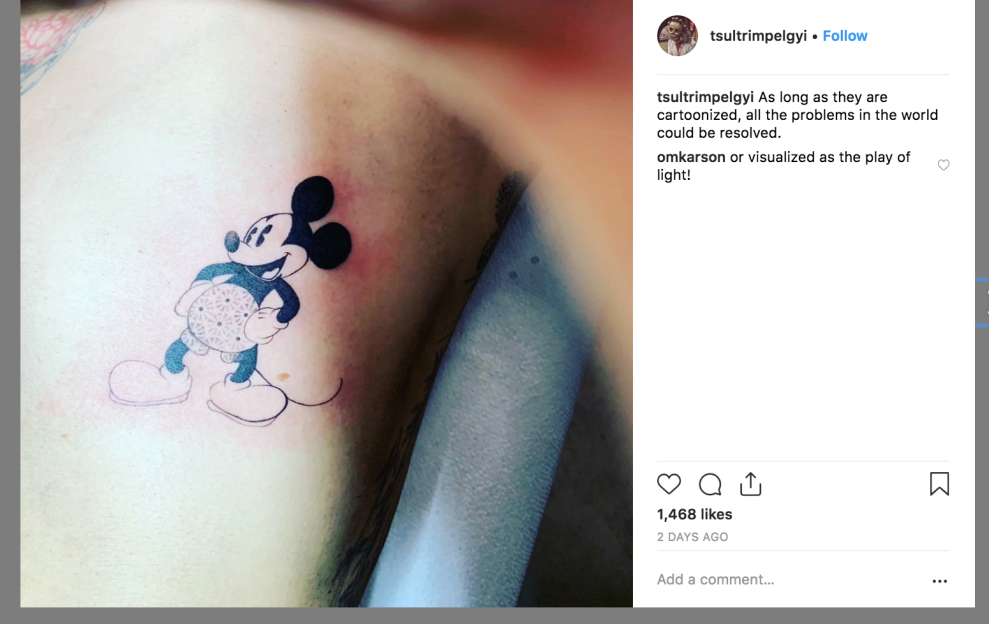
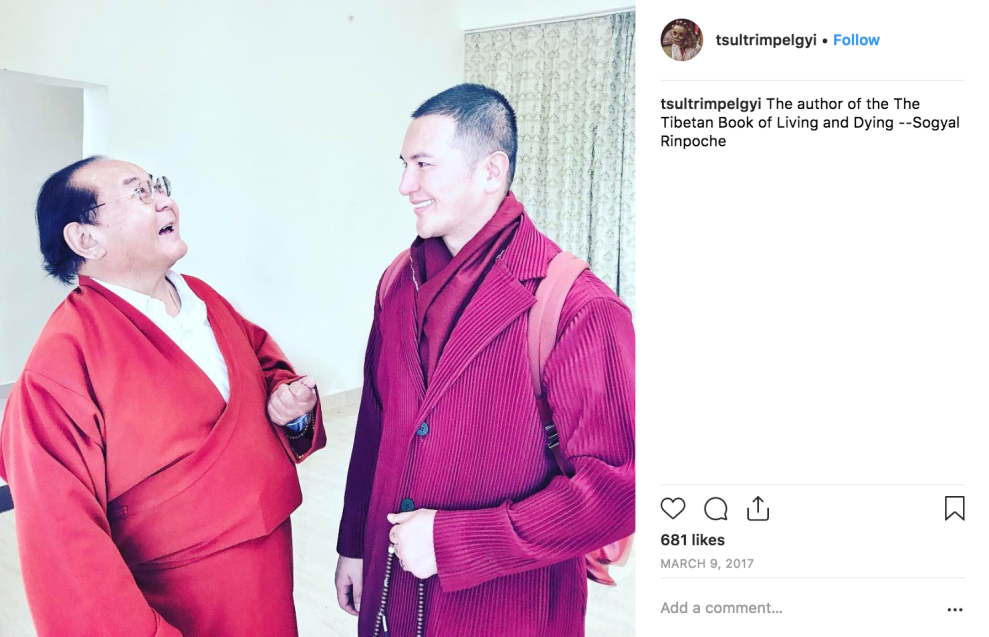
Gao, pictured with Sogyal Rinpoche, author of The Tibetan Book of Living and Dying
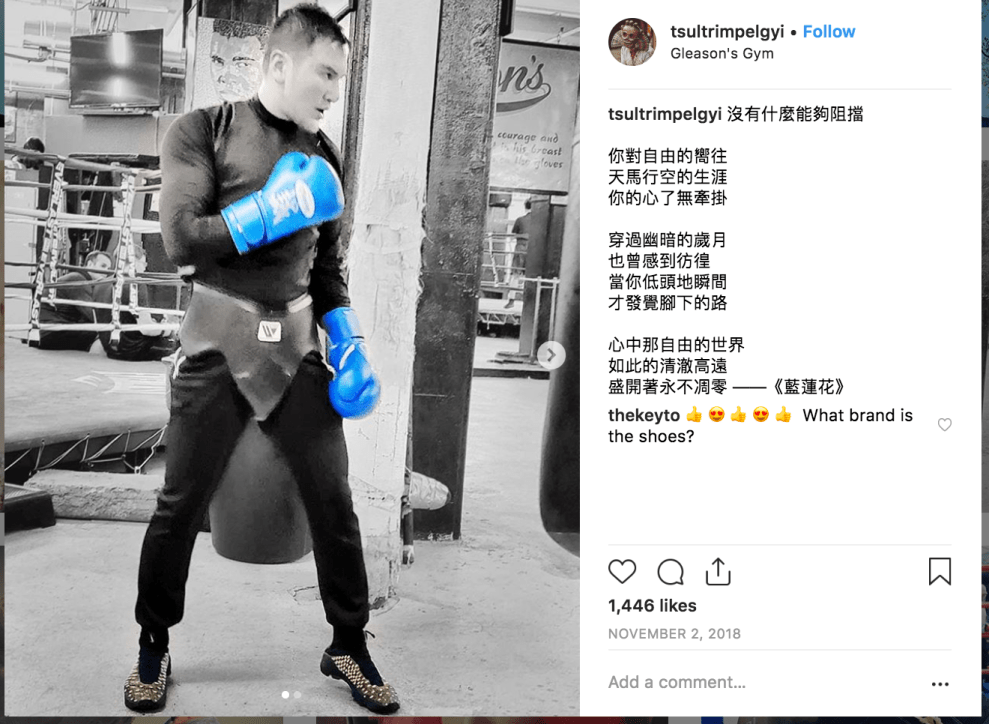
Gao works out at Gleason’s gym in November 2018.

Gao, pictured in West Palm Beach with Trump donor and lobbyist Robert Finley Hyde (left)

Gao shows off a pair of Mercedes G-Wagons.
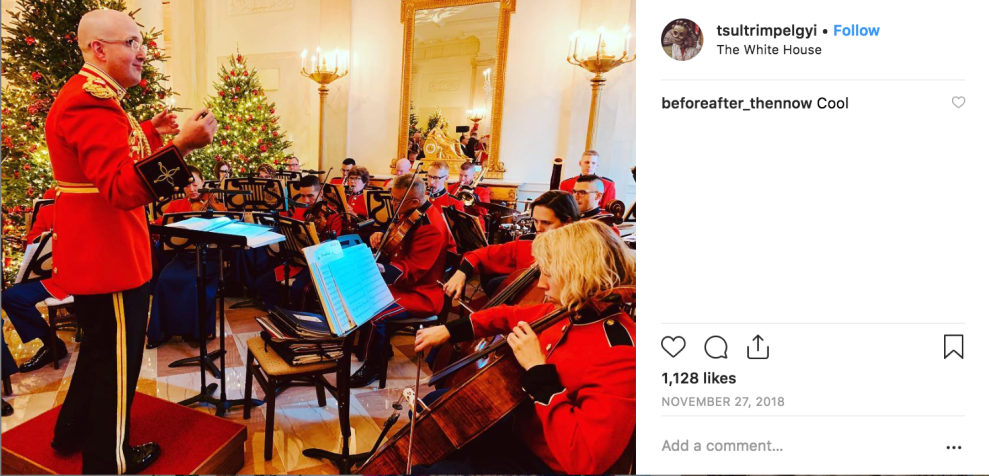
Gao attends the 2018 White House Christmas reception.
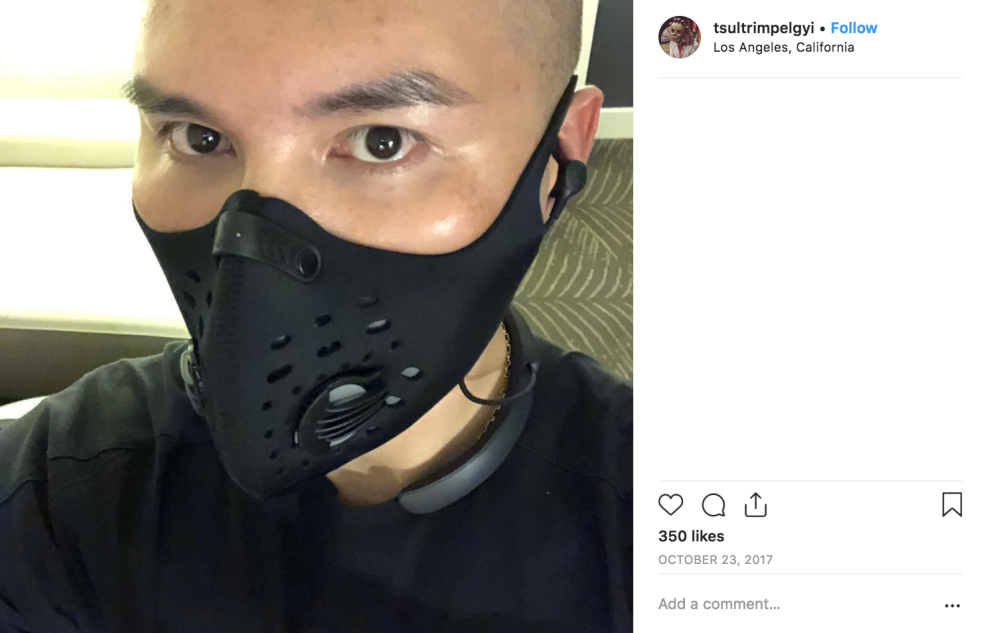
Gao in Los Angeles in October 2017












